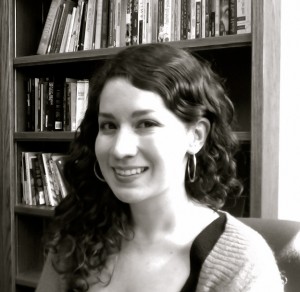By HOLLY RAMEY

Professor Natalie Cisneros, recent graduate of Vanderbilt University and former resident of San Diego, Calif., hopes to bring her West Coast experience to Allegheny’s philosophy department.
Different from her time spent at Vanderbilt, she enjoys the close-knit community at Allegheny as well as the engaging students in her classrooms.
Cisneros is teaching two philosophy courses this semester. Her ethics course focuses on the meaning of fitting into a community and upholding those ethical standards.
“We’re talking about what it would mean to live up to our democratic ideals and the challenges that are opposed to these ideals,” said Cisneros.
The goal of the semester is to work through these conflicts to find solutions and build communities that are more ethical, she said.
Her second class, Oppression and Liberation, is a discussion-based course that focuses on the theoretical concepts of oppression throughout the history of philosophy. The class also looks at philosophical texts to determine ways of liberating societies from even modern issues of power and oppression.Cisneros’ fields of study included theories of race and gender, social and political thought and philosophies of Latin American cultures.
“I feel like my work is at the intersection of a lot of different fields,” Cisneros said.
She finds it is important to examine the injustices of society through the experiences of people around the world. Her work involves bringing these fields together to develop a better insight to the things she sees going on around her.
One goal of her stay at Allegheny is to continue highlighting issues of social justice and expand the legacy left by Professor Bill Bywater. His work with contemporary problems is something Cisneros thinks is important to focus on in the classroom.
“The discussions will change as the world around us changes,” she said.
Cisneros said she’s looking forward to teaching about Latin American philosophy in the spring, partly because she believes it will bring a new perspective to the philosophy department. Diverse ethical and cultural backgrounds are important to examine in the classroom, she said, because these issues confront us every day.
“It is necessary to have all of these perspectives,” she said.
For any students considering philosophy, she said it’s important to try it out because it is something that is engaged in, not just read about. According to Cisneros, a student needs to become actively involved in the study of philosophy in order to understand the field.



